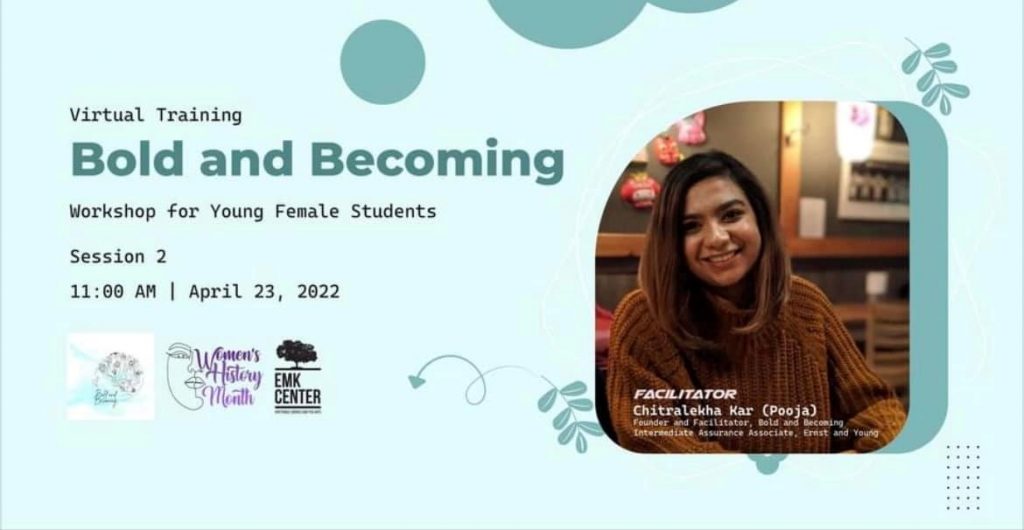“Understanding the Purpose” was the 2nd workshop in our series of monthly workshops. We discussed the definition and importance of having a purpose, how to find a purpose for our goals, and setting SMART goals.
What is the Purpose?
“Purpose” is an intention or reason to attain or achieve something. It is the “why” behind one’s goals and actions. Purpose is something that gives you fuel to keep moving forward.
The importance of having a purpose
A study of Psychosomatic Medicine found that people with a greater sense of purpose have a lower incidence of cardiovascular disease and lower mortality.
Another study by Harvard Business Review showed that if companies had a clear and organized purpose that was widely understood in the organization, they would have better growth than other companies. Statistically, it is shown that 52% of purpose-driven companies experienced over 10% growth compared with 42% of non-purpose-driven companies.
Purpose is important in various ways. It makes you feel content with your contribution to the universe. It gives you a reason to wake up every morning. It becomes the reason for your existence.
How can one achieve something if they don’t know WHY they are doing what they are doing in the first place?
Without a purpose, you are like a boat without a sailor. You could lose the motivation behind your goals, feel clueless, and be less connected to your work. You can align your work by defining your purpose.
So you need to understand your purpose, your ‘why.’
For this, we practiced some exercises with our participants to help them understand their purpose and create plans to achieve the goals.
Exercise-One Year From Now
We started by asking our participants what they understood by purpose—what purpose meant to them. Then we moved on to our 1st exercise which was a vision-building exercise: where do you see yourself one year from now? We requested them to write down where they would want them to see after one year in three different sectors: personal, financial, and work/professional lives. In personal life, we encouraged the attendees to think deeply about their mental, physical, social, personal, and spiritual selves.
This exercise can help any individual to understand where they want to direct their lives. With this one-year frame, they could create a detailed plan to set small goals in their daily lives to achieve those goals.
Exercise-02
The next exercise was to write down the “why” behind those goals. We directed them to write down the reasons behind their goals. Those reasons are their purposes, their compass for direction, and motivation toward their goals. These statements will be a reminder of why they started their journeys in the first place.
One’s values are integral parts of one’s life; values show you the direction and purposes ignite the driving force to move forward in that direction.
Exercise-03
Our last exercise was extremely important. This step was crucial in learning how to set goals effectively and smartly. Often, people make goals but can not commit to them for long. There are different reasons behind it. It can be personal. It can be the environment or any unavoidable situation. Often, people don’t understand the different elements of goal setting, such as deadlines, progress measurement, specificity, etc., as goals should be S.M.A.R.T.
S stands for specific. Goals should be certain and fixed. If your goals are vague, then it becomes challenging to allocate resources efficiently and thus ultimately achieve them. It can be overwhelming too. And can make you feel you have lots of things to do but can’t achieve anything.
M stands for measurable. Goals should be quantifiable to understand the growth. You should be able to measure your progress towards your outcome and adapt your plan accordingly.
A stands for attainable. Goals should be realistic and achievable. We can achieve anything that we put our minds to, but having said; if one doesn’t have a pragmatic plan with the given resources and conditions they have, that can hinder their journey. For example, if someone sets a goal to lose 50lb in 3days then that is not realistic nor healthily attainable. Realistic goals help us to track our growth and boost our self-esteem.
R stands for relevant. This is the WHY(purpose) of our goals. We need to understand the reason behind our goals to understand their relevance in our lives. Setting a relevant goal based on my purpose helps to focus and keeps the motivation going.
T stands for time. It is important to set a deadline for your goals. It stimulates you and gives you the urge to work towards your goals. Also, a certain deadline can help you to make an action plan to meet the deadline. A goal without a deadline is a playground for procrastination.
So what are you waiting for? Make smart goals and ask yourself if what you are doing today is getting you closer to where/how you want to see yourself tomorrow.
The workshop was interactive with its ice-breaking session, exercises, and sharing of each other’s thoughts and experiences. A group of inspiring and confident people was all consumed with discussing the great “why(s) of their lives!
The main speaker was Chitralekha Kar Pooja, Founder, and Facilitator of “Bold and Becoming”, an Assurance Professional from EY, NY, USA. The workshop was hosted by the EMK center.
The recorded version is uploaded on our YouTube channel. Follow our pages for more updates on our monthly workshops and webinars.
Let’s hear about your purposes. Are you making S.M.A.R.T goals? Till then Happy goal setting!!
Let us know at boldandbecoming@gmail.com.



